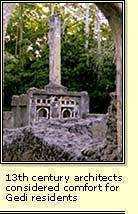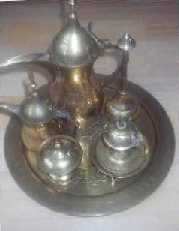
The Waswahili Community Trust UK
(Wadhamini wa Jumuiya ya Waswahili)


|
The Waswahili Community Trust UK |

|
From what we have said earlier, it is quite clear that the Swahili dhow has been there for millennia before the advent of Islam. The livelihood of most of the concentrations of human populations along the shoreline of the Indian Ocean were in one way or another closely dependent on the mercantile trade.
The technology of sailing the seas had been achieved for a while among virtually all the Indian Ocean harbours. The Swahilis are no different except in one thing. As a people, the Waswahili virtually monopolized the mercantile trade of the Eastern Africa seaboard.
They formed a solid wall of middlemen between the foreign visitors and the East African interior.Because of belonging to a mercantile civilization, the Swahilis have tended to enjoy a standard of living beyond their agricultural resources.
It is very much like Singapore. Lee Kwan Yew deliberately focussed his resources on breaking into the world financial market. If we may corrupt a Kwame Nkrumah adage: 'Control ye the financial world first, and yours is the political kingdom.' The Swahilis probably followed the same strategy without articulating it in quite that way. The cultural milieu that we have come to call the Indian Ocean Culture.
This is partly represented by the diverse foods - foods which the Swahilis have come to enjoy on a regular basis even when they do not grow a number of the basic ingredients of the recipes. Wheat-based recipes - of which there any number - abound in Swahili foods even though no wheat was grown in pre-European East Africa! It is also doubtful if most of the rice used was actually grown locally even though a fair amount was indeed grown in Eastern Africa.
But imported varieties - now as then - still satisfy table (or shall I say mat) needs of the Waswahili. Two components of Swahili diets were probably ones which were always locally produced. One of these is the ubiquitous coconut and the second is the local cereal - sorghum. Beans and a number of pulses probably both home-grown and imported.
The point we are trying to make really is that we do not believe that Swahilis are primary agriculturists largely I would propose because of the extent of the Indian Ocean trade. The big storage balasis and other storage facilities very probably provided every home with wheat-flour supply during the entire Kusi.
We appeal for your donation for our charity
Comments and suggestions to improve this website
Your suggestions or concerns about our services
Please send you contributions by using the form.
| Thank you Asanteni |
|---|

Copyright© March 2003: The Waswahili Community Trust (UK)
Registered Charity:1083065